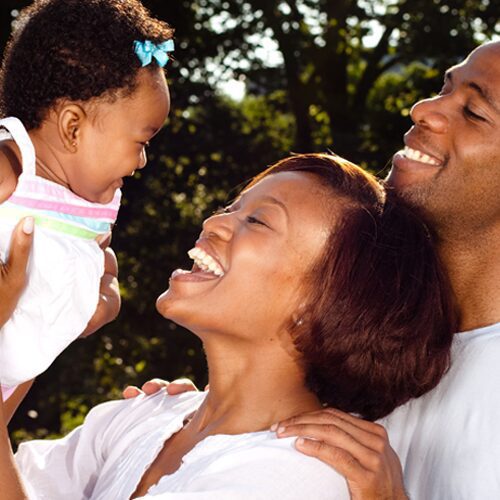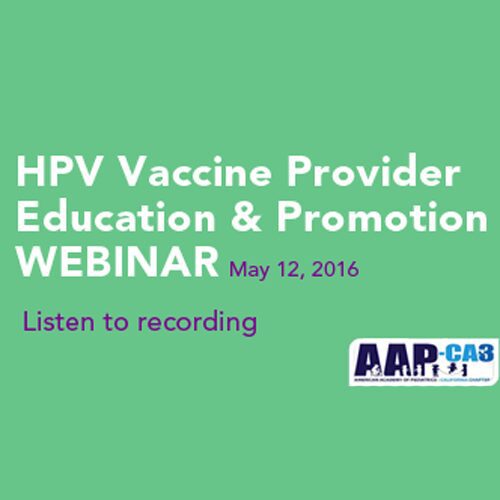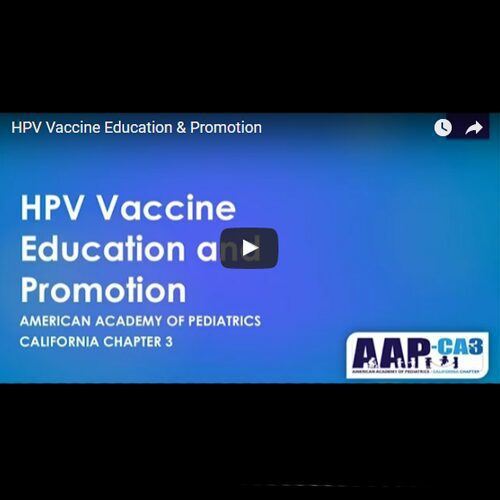


First 5 First Steps
September 7, 2016


AAP-CA3’S HPV Vaccine Provider Education And Promotion Webinar
September 9, 2016The HPV vaccine is routinely recommended for 11-12 year old boys and girls, along with the Tdap and MCV vaccines. However, HPV vaccination rates among American teenagers lag far behind those of Tdap and MCV. Pediatricians often encounter parents who refuse or delay the HPV vaccine, even if they are willing to consent to other childhood vaccines. Parents often have fears about the side effects of what they perceive to be a “new” vaccine, and question why a young pre-teen would need vaccination against a sexually transmitted virus. Research also demonstrates that providers often fail to make a strong recommendation for HPV vaccination at the age 11-12 visit, which potentiates the idea that the HPV vaccine is “optional” and not as important as other scheduled vaccines. This video provides up-to-date information about the burden of HPV-related disease, the rationale behind vaccinating pre-teens prior to sexual debut, the clear need for boys as well as girls to receive HPV vaccination, and vaccine safety information. The video features 8 case vignettes in which doctors demonstrate effective counseling strategies, incorporating the latest available evidence, to address the concerns of vaccine-hesitant parents.
VIDEO SEGMENTS
HPV Vaccine Education and Promotion: Reviews background information and epidemiology of HPV infection in the USA, including why it should be viewed differently from other sexually transmitted infections.
Discusses the substantial burden of HPV-related disease in males, and why vaccinating males is critically important.
Explores the rationale for vaccinating adolescents and young adults who are already sexually active, and how to counsel them about their need for vaccination.
Discusses HPV vaccine safety information, and how to address parental concerns about a “new” vaccine.
Describes ways to ensure that the HPV vaccine is not perceived as “optional” by families.
Discusses the importance of presenting HPV as a cancer-causing virus, not an STD.
Discusses how to prevent and manage this potential side effect of HPV vaccination.
Reviews the rationale for vaccinating at this age, and how to convince parents of pre-teens that they should not postpone HPV vaccination.
Explores options for “leaving the door open” if a parent continues to refuse the HPV vaccine after counseling.


